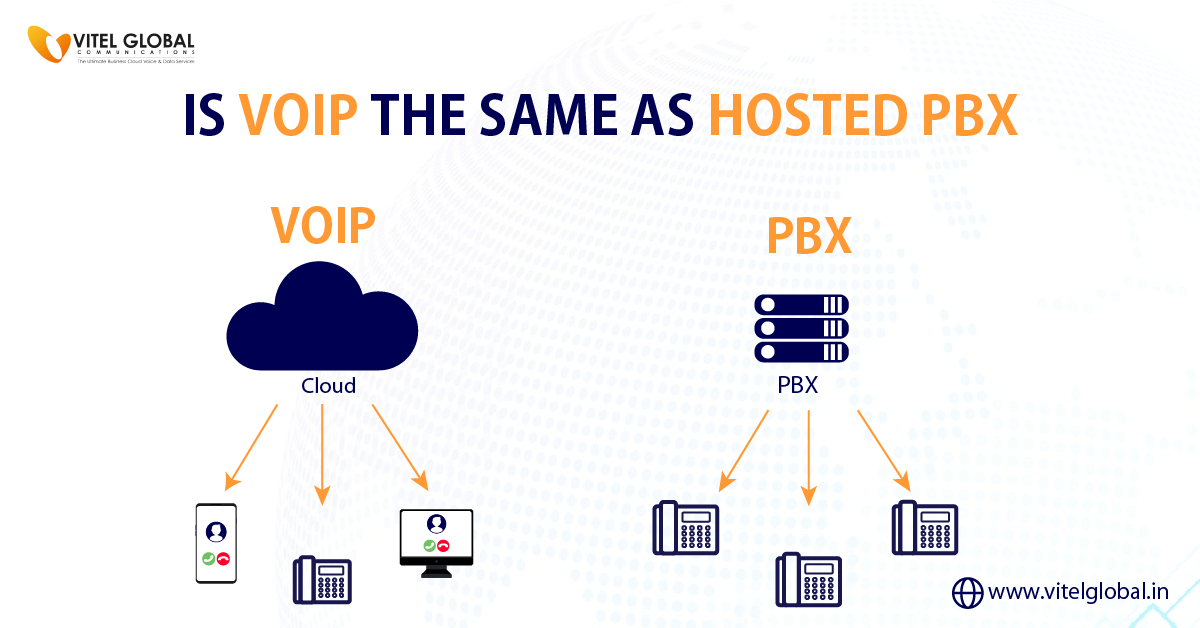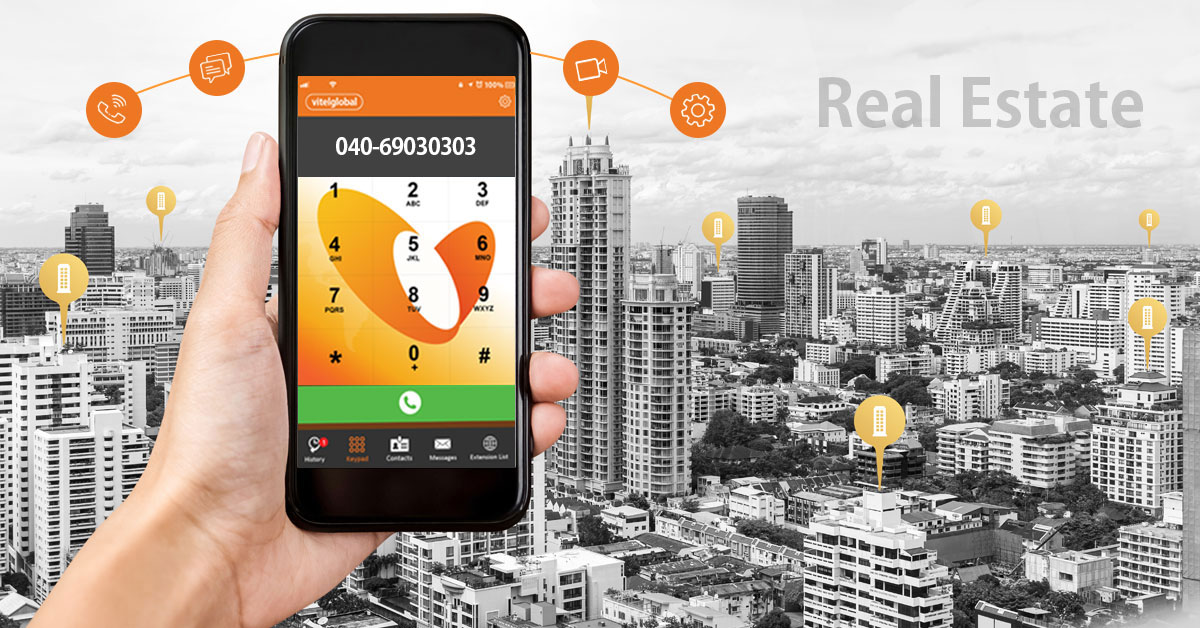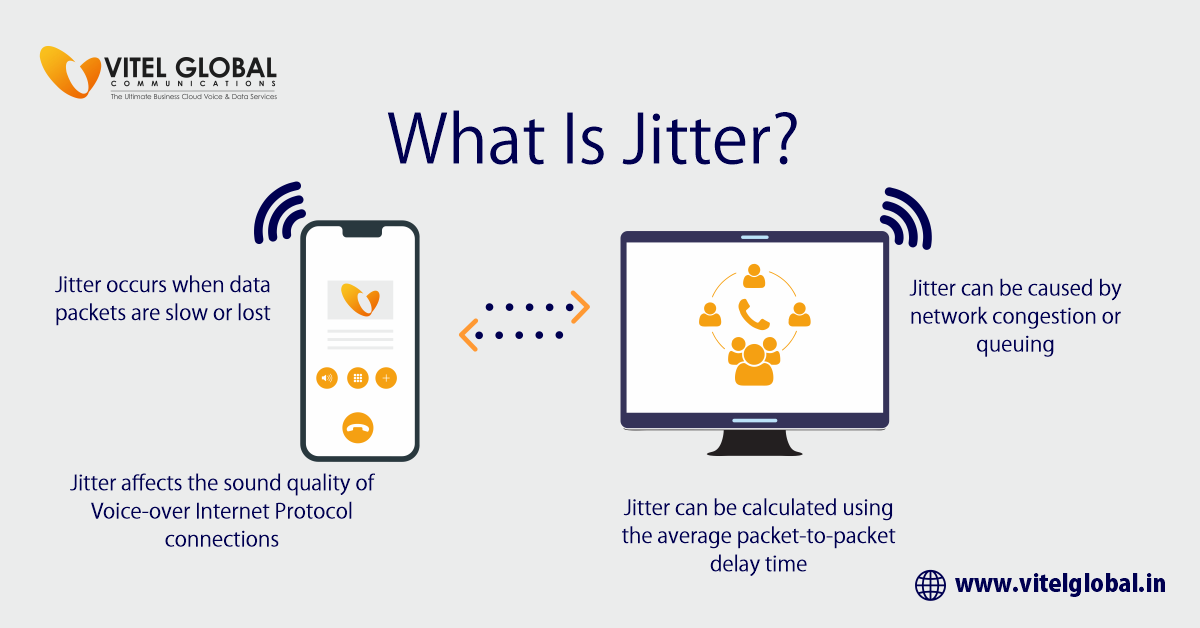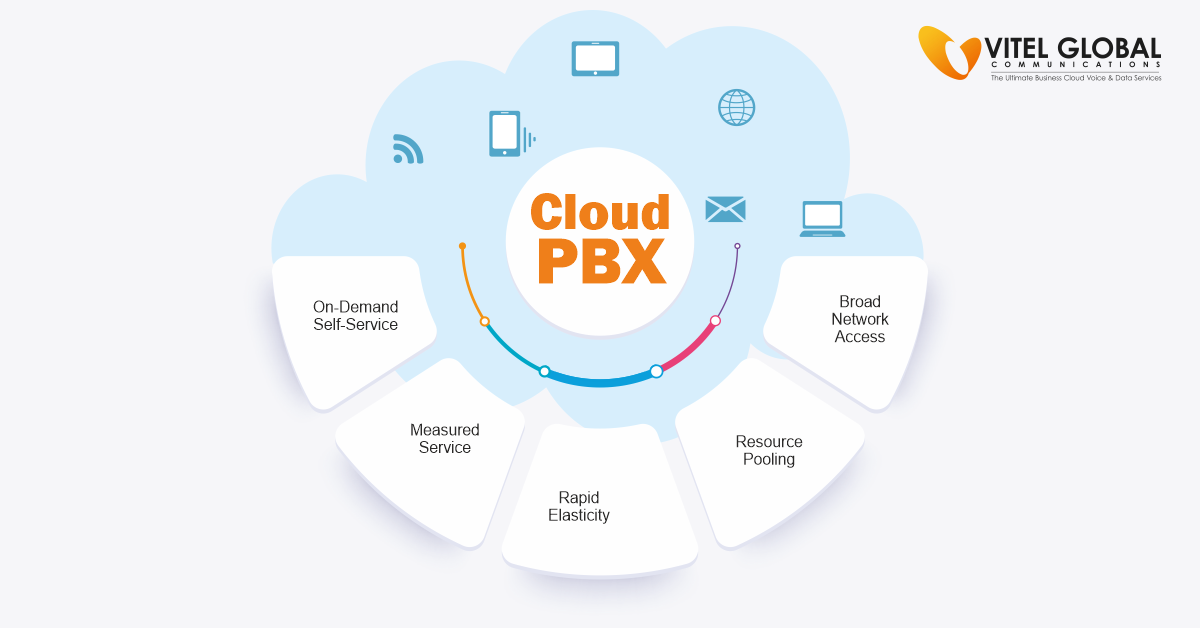Table of Contents
VoIP vs hosted PBX needs to be clarified regarding business communications. Many blogs say these two are opposites, but this is untrue.
What comes to mind when you hear the comparison between VoIP vs hosted PBX? They represent two decisions and two distinct forms of communication.
Let us clear up this confusion with this blog. Here, we briefly describe both terms and how they are related in a user-friendly way.
What is a PBX?
A business phone system that links desk phones in offices over the same network is known as a “PBX,” or private branch exchange. It allows staff members to make free calls to one another and make call transfers within an organization. A company can share fewer lines between more phones with the help of a PBX phone system. Extensions direct phone calls to the intended recipient instead of physical phone lines.
Traditional PBXs connect to physical phone lines using specific hardware components, ensuring complete independence between an organization’s voice and data networks. Analog phone systems are being changed by IP telephony and the ISDN and PSTN switch-off trends.
What is VoIP?
VoIP stands for voice-over-internet protocol. A VoIP phone system simply converts your voice into files, compresses them, and transforms them into data packets for transmission over the Internet. All this happens in real-time. It is virtually instant. A VoIP provider transmits these packets over the Internet and converts VoIP into a suitable format before forwarding it to the recipient’s alternative phone.
A VoIP call is just as quick as an analog call, even though many things happen during this process. When this technology first appeared, you may have been wary of it. Initially, VoIP service providers needed help delivering even a basic level of service; today, that has changed. The bandwidth and the device being used may impact the VoIP sound quality. To ensure HD audio quality, the majority of VoIP providers now provide a variety of different protocols and codecs.
A VoIP solution works for many small, medium, or large enterprises. Go through the blog for the additional benefits of VoIP PBX systems.
So What is a VoIP PBX?
A phone system called a VoIP PBX (Voice over Internet Protocol) PBX (Private Branch Exchange) functions similarly to a traditional PBX. The difference is that it utilizes a local or vast area network instead of the conventional networks found in the earlier public switched telephone network (PSTN) systems. An IP PBX is another name for it.
A VoIP phone system uses VoIP to change phone calls on local lines, between a landline user and a VoIP user, or between two traditional users. IP PBXs can be configured with hardware or only with installed software.
A hosted PBX option is another choice besides on-premise VoIP solutions. Business VoIP providers offer a cloud-based service with the same features as hosted PBX, eliminating the need for expensive on-site equipment or installations.
Why Do People Compare VoIP vs Hosted PBX?
PBX can mean different things to different people. While some people believe PBX is simply another name for the business phone system, others believe that PBX is the same as traditional PBX.
Most people want to compare VoIP vs hosted PBX systems such as VoIP PBX, IP PBX and hosted PBX with PBX systems such as analog PBX, TDM PBX, and proprietary PBX. The differences between each type of PBX system and their advantages and disadvantages will then be demonstrated.
Advantages of VoIP Phone Systems over Hosted PBX
Lower Initial and Operational Costs
In comparison to VoIP services, landlines typically cost much more. Let us begin with the installation. SIP trunking, used in VoIP solutions, typically has a low or no setup cost compared to landline setup fees.
Most importantly, users of IP PBX experience lower monthly service fees and calling rates, as calls are routed over an IP network. Internal calls can be made at virtually no cost. You can also incur significant expenses from International and mobile calls.
Mobile Team Support
Many VoIP PBX service providers provide softphones that can convert your computer and mobile device into an office extension that functions similarly to a desktop phone. These softphones can be desktop, web-based, or mobile-based. It benefits offices with multiple locations, remote workers, employees who are always on the go, and field workers. BYOD (Bring Your Device) Conventional PBX phone systems do not support mobility and assist users in transcending geographical boundaries. It simply cannot adapt to the growing trends of hybrid work.
Advanced Telephony Features and Unified Communications
Even though some systems can offer more, they typically come with many additional costs. A traditional PBX only has a small number of essential features. IP PBX provides IVR, queues, voicemail, call recording, and other advanced business telephony features. Depending on your service provider, they could even be free of licenses.
Even better, VoIP solutions enable you to adopt unified communications. It allows you to access more communication options and features, including CRM integration, video conferencing, instant messaging, and presence. Any business can now take a significant step toward digital transformation.
Easier Installation and Management
In addition to being more user-friendly than analog PBX phone systems, IP PBX systems are simpler to install, configure, and manage. When data and voice are delivered over the same network infrastructure, you can save time and money on equipment installation and physical telephone lines. Some analog PBX telephone systems can only be controlled by complicated commands specific to each vendor. In contrast, IP PBXs frequently offer a user-friendly web-based management interface that enables IT staff to configure the VoIP system and its many features quickly.
Phone Compatibility
Analog PBX systems typically support a minimal number of phones. Analog PBX phone systems typically limit users to proprietary phones from the same vendor, restricting the use of alternative options. Reputable IP PBX providers offer the flexibility of using popular IP phones out of the box, while also enabling the use of analog telephones with VoIP gateways. Even better, they offer softphones so that your computer, mobile device, and web browser can all function as SIP endpoints.
How Can You Pick The Best Business Phone System?
You typically need to consider several factors when choosing an enterprise phone system, including the size of the business, the IT staff resources, and your functional requirements. Review the information below to determine which business VoIP system is the best option for your business.
Is the Network Connection at Your Company Strong Enough?
As mentioned, today’s future-proof business phone systems mostly use VoIP technology, necessitating a steady and quick internet connection. ISDN and PSTN lines are being phased out. Before investing in any IP PBX, you must ensure this. A VoIP GSM/3G/4G Gateway may be the best option for business communications in locations with sparse landline or SIP connections.
Has the PBX System been Managed and Maintained by Internal IT staff?
The answer to this question significantly influences your decision between an on-premise IP PBX and a cloud PBX system. An on-premise IP PBX is an excellent option if you have technicians with the necessary skills and prefer the most control over your business phone system. By opting for a hosted voice solution and letting your service provider handle it, you can significantly minimize the time and effort required, mainly if you operate a small business or startup with limited IT resources.
Do You Anticipate Any Significant Staffing Changes at Your Company Shortly?
In contrast to VoIP phone systems, adding new users and lines to analog PBX phone systems is typically more expensive and time-consuming. Cloud PBX systems are more adaptable for businesses that experience staff reductions or increases throughout the system’s lifespan. You only need to pay for the extensions you use; the number of attachments can instantly increase or decrease. It benefits start-ups expanding quickly or seasonal businesses with varying communication needs.
Set up Cloud PBX in Minutes
Effortless. Economical.
Enjoy phone calls, messages, video meetings, contact management, and notes in an all in one solution
Does Your Business Operate in Multiple Locations?
If so, you may encounter the question, does it matter if I choose an on-premises or cloud-based PBX?
Although implemented differently, both phone systems can support businesses with multiple locations. Cloud PBX makes using the same phone system more accessible for the main office, branch offices, and remote workers. Some on-premise PBX vendors, such as Vitel Global Services, also provide several multi-site solutions.
Conclusion
In conclusion of this article VoIP vs Hosted PBX, while both VoIP and Hosted PBX are telecommunication technologies that utilize the Internet to transmit voice communications, they are not the same. VoIP (Voice over Internet Protocol) refers to making phone calls over the Internet, using IP-based networks to transmit voice data. On the other hand, a Hosted PBX (Private Branch Exchange) refers explicitly to a cloud-based phone system that incorporates VoIP technology along with additional features and functionalities such as call routing, voicemail, and call management.






